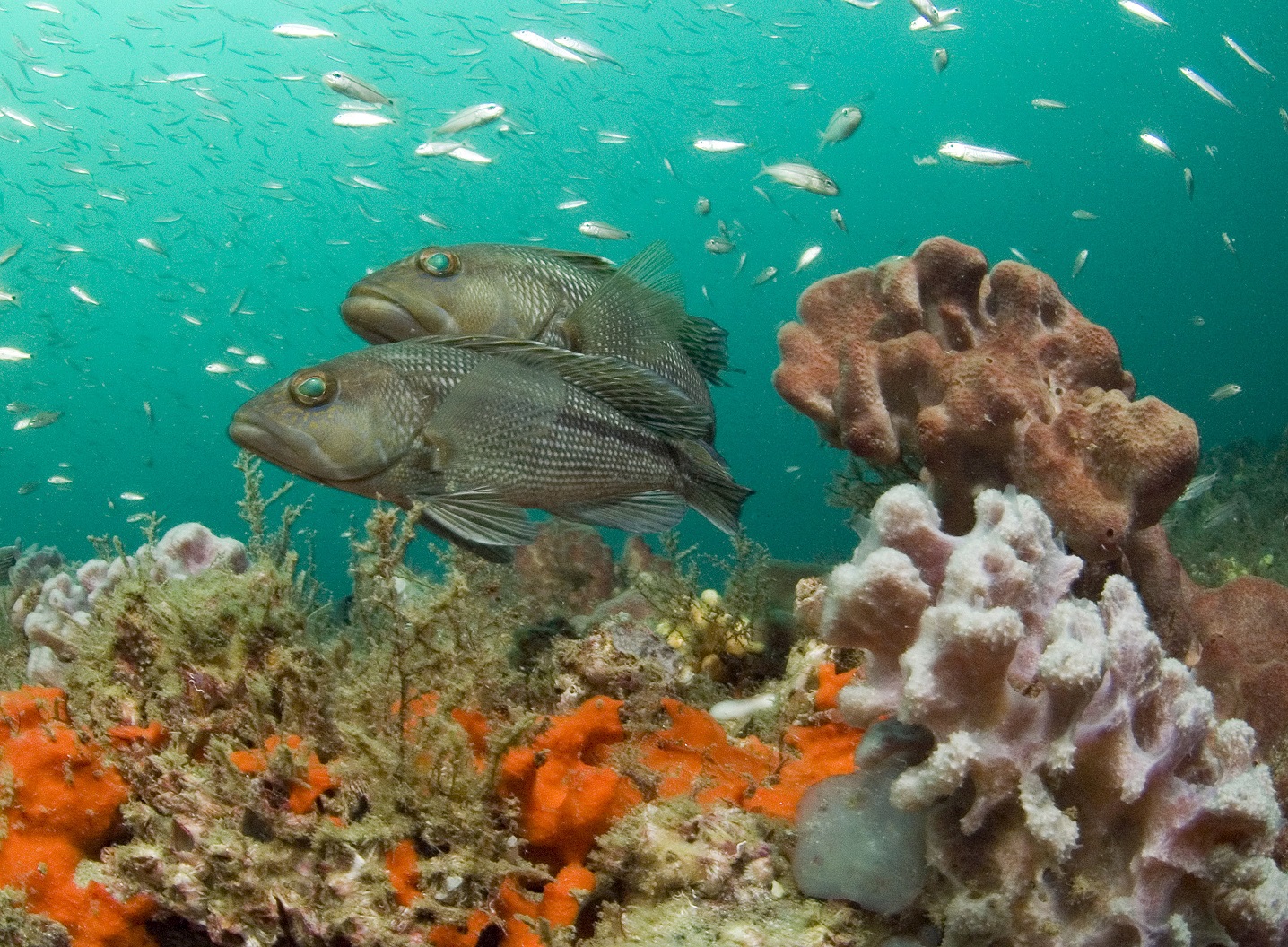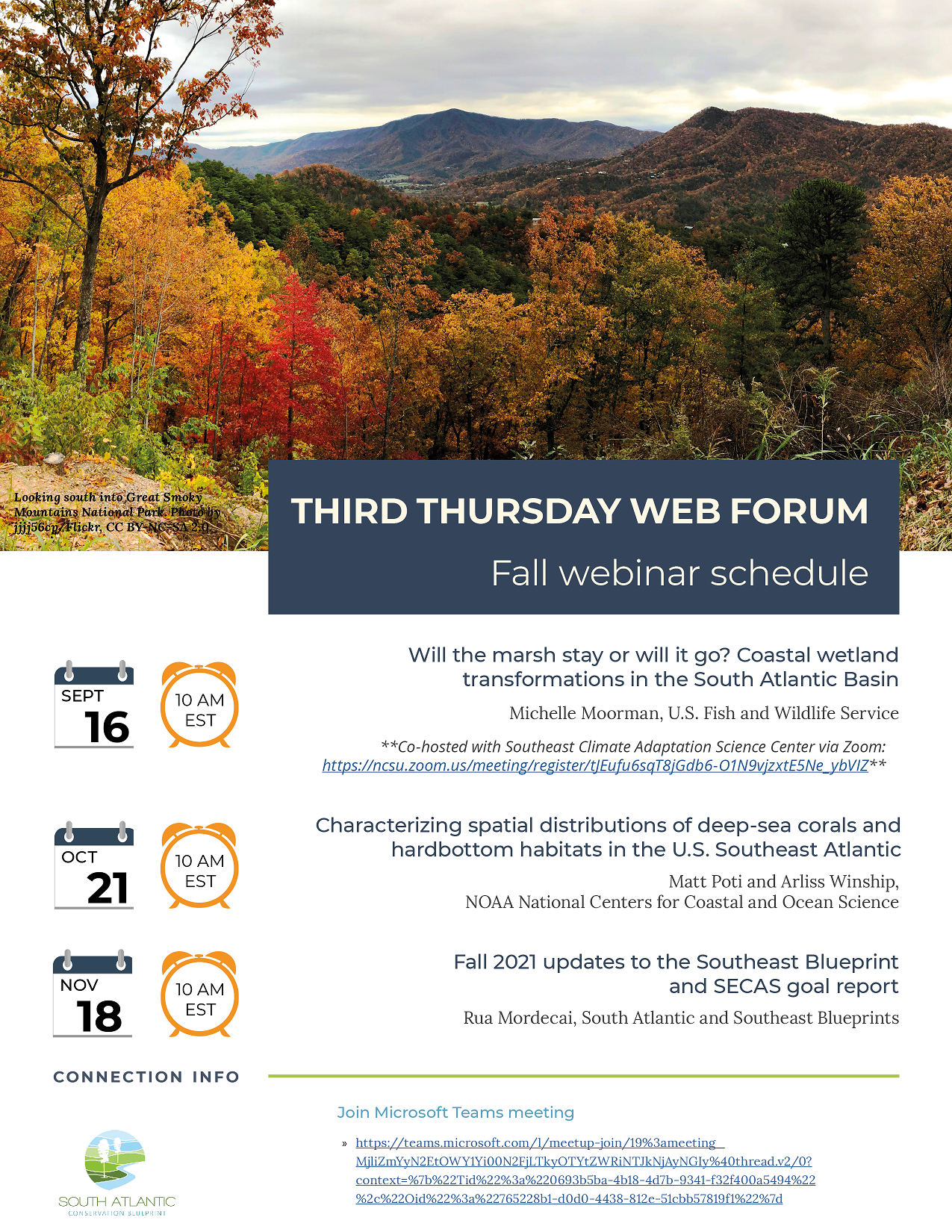Characterizing spatial distributions of Southeast Atlantic deep-sea corals and hardbottom habitats - Webinar on October 21st

Webinar details
- Title: Characterizing spatial distributions of deep-sea corals and hardbottom habitats in the U.S. Southeast Atlantic
- Speakers: Matt Poti and Arliss Winship, NOAA National Centers for Coastal and Ocean Science
- Date: Thursday, October 21st
- Time: 10:00 am Eastern
- Connection information: Join the Microsoft Teams meeting (Note - no registration required, just click to join the webinar when the time comes!)
The October South Atlantic Third Thursday Web Forum is coming up on October 21st! Matt Poti and Arliss Winship with the NOAA National Centers for Coastal and Ocean Science will present on an exciting project to develop spatial predictive models for deep-sea corals and hardbottom habitats in the U.S. Southeast Atlantic to inform and support environmental risk assessments, environmental impact statements, and other decision documents related to the review of proposed offshore energy development in the region.
A database of presence-absence observations of deep-sea corals and hardbottom habitats was compiled using 20 datasets containing data from field surveys conducted using underwater vehicles. These observations were integrated with spatial environmental predictors depicting seafloor topography, substrate, oceanography, and geography in statistical models (occupancy models) to predict and map the estimated distributions of 24 deep-sea coral taxa and hardbottom habitats throughout the study area. The maps identify areas where these organisms are more likely and less likely to occur. In addition, a map of predicted taxonomic richness was produced to identify areas where the modeled deep-sea coral taxa are more likely to co-occur. Information from the maps of predicted probability of occurrence and predicted taxonomic richness can contribute to assessments of the potential impacts of offshore energy development and other activities on these sensitive benthic biota.
Check out the study website for additional background.
A recording will be posted afterwards to the calendar event on the South Atlantic website, if you’re unable to attend.
The November 18th webinar will also be highly relevant to the SECAS community. Check out the flyer below for a sneak peek:

More details to come on that one next month!